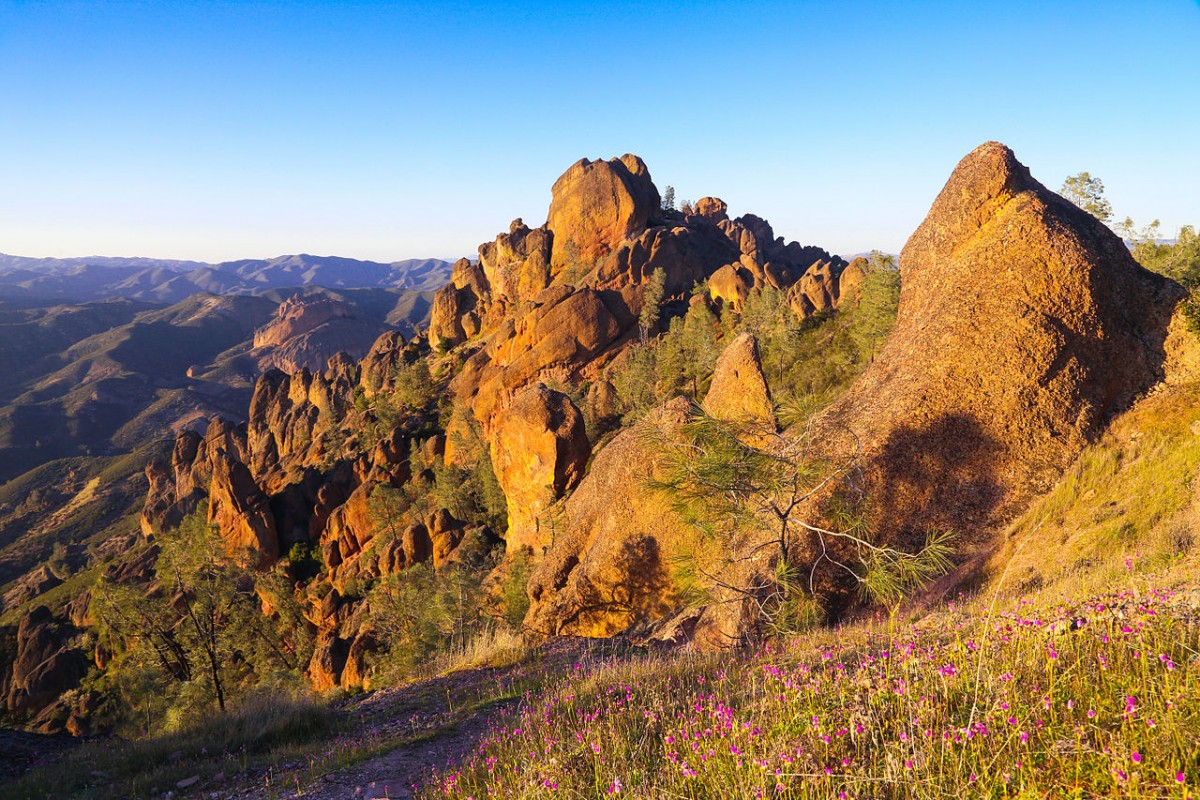The new Southwest Semester takes 13 students on a study tour of the geology, people, and environmental politics of America’s Southwest Aug. 3–Nov. 20
TACOMA, Wash. – Professor of Geology Barry Goldstein makes this prediction for the 13 students who will be in his charge during the new Southwest Semester of study and travel offered by the University of Puget Sound:
 “They will grow up in a lot of ways,” he says, with a frank look. “They’re going to work so much harder than they think they will. They’re going to work really hard.”
“They will grow up in a lot of ways,” he says, with a frank look. “They’re going to work so much harder than they think they will. They’re going to work really hard.”
Hard enough, he explains, that by the time the 13 college juniors and seniors finish the three weeks of intensive on-campus learning and 14 weeks of research and travel through Montana, Wyoming, Colorado, Utah, Colorado, New Mexico, Arizona, Nevada, and Southern California this fall, they will, in Goldstein terminology, “get it.”
Some of that process of “getting it” will include meeting people living with leukemia who once worked in the Moab, Utah, uranium mines; looking over California’s Salton Sea at the parched aqueduct system in the midst of farmland starved by drought; and marveling at the “gigantic apartment complexes” built of rock and adobe by the native Anasazi people 1,000 years ago in Mesa Verde, Colo.—structures “that any condo builder today would be glad to have built,” as Goldstein says.

The new full-credit, semester-long study program, running Aug. 3 to Nov. 20, combines the exotic experience of a study abroad trip with the powerful benefits of multidisciplinary learning from a seasoned geology professor, from Professor of Environmental Policy and Decision Making Dan Sherman, and from two experienced guides, and various “visiting” professors and local experts who will join the group for short periods to teach other disciplines.
The Southwest Semester, offering upper-level courses in geology, water, energy resources, and environmental politics, will also immerse students in the anthropology, politics, economics, culture, sociology, and archaeology of a region.
“These are really interconnected,” says Goldstein, a geology teacher for more than 30 years. “When you are on the ground somewhere, you can see that is true. Why do people live the way they do? What is their history? This is not just about academics but about soaking up the environment.”
The program—like last year’s Food Systems Northwest course, which took students across the Pacific Northwest to learn how food gets from farm to table; and the new Southeast Asian field schools, in which students research environmental issues on short study trips to Asia—is one of the many “experiential learning,” hands-on opportunities being emphasized at Puget Sound.
“I am going on the Southwest Semester actually to see what I am studying,” said Katie Ruthenberg ’16, a senior from Okemos, Mich. “I learn best by working through questions which I find important, and I think many would agree that water policy in the Southwest is becoming an issue we cannot ignore.”
 On the Southwest, the itinerary is study tours of Yellowstone National Park; the alpine geology of the Colorado River headwaters at Green River Lakes; the quarry fossils at Dinosaur National Monument; abandoned mines at Crested Butte, Colo.; Monument Valley in Utah; ancient ceremonial relics at Chaco Canyon; the Grand Canyon, Glen Canyon Dam; the San Andreas Fault; and the volcanic rock formations of Pinnacles National Park, among other sites.
On the Southwest, the itinerary is study tours of Yellowstone National Park; the alpine geology of the Colorado River headwaters at Green River Lakes; the quarry fossils at Dinosaur National Monument; abandoned mines at Crested Butte, Colo.; Monument Valley in Utah; ancient ceremonial relics at Chaco Canyon; the Grand Canyon, Glen Canyon Dam; the San Andreas Fault; and the volcanic rock formations of Pinnacles National Park, among other sites.
Sherman, director of environmental policy and decision making at Puget Sound, will co-teach the program for the first four weeks and join the group again in October for about three weeks. Contributions from faculty members in such diverse fields as international political economy, politics, government, art, English, and biology are expected to enhance the academic experience. The students will also learn from local experts at museums, parks, and environmental organizations.
Midterm and final exam weeks will occur as normal at off-campus locations, with the students using the time to prepare and submit papers, exams, and presentations. The 13 students enrolled in the program are pursuing majors and minors including geology, art history; biology; international political economy; environmental politics and decision making; and science, technology, and society.
Press photos of the study trip will be available, upon request, as the students tour the region.
Photos on page: Top right: Pinnacles National Park, by Joe Parks; Top left: Mesa Verde, Colo., by Lisafein; Above right: Dinosaur National Monument, by Koelle of German Language Wikipedia; Above left: Moab, Utah uranium mill tailings pile, by U.S. Department of Energy (All photos public domain or creative commons)
Tweet this: Talk about #experiential! Students @univpugetsound tour #Southwest; study #geology, #environment, politics #highered
Follow us on Twitter! twitter.com/univpugetsound
